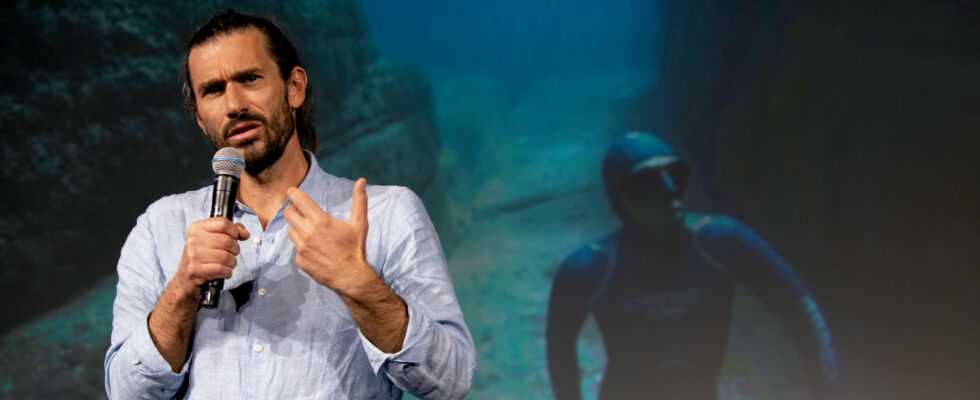From Jacques Rougerie to Maud Fontenoy via the freediver Guillaume Néry, our appointment this Saturday, many have come to our conference for the defense of the marine world.
“When you dive in apnea, you have an acute awareness of the available resource. I have to use a single puff of air, stored in my lungs, sparingly, frugally and intelligently. My life as a freediver confronted me with reality in a sensory way. And leads to necessary reflection. Humanity has lived too long thinking that our planet was a reservoir of uninterrupted breaths of oxygen. She was slow to understand that we lived in an environment with limited resources. For me, breaking records and pushing the limits does not rhyme with technological improvement, in a logic of “always more” but, on the contrary, leads to a quest for economy of movement and sobriety in what I implement for be able to move forward.
Read also: Transport, habitat, research: the future of our civilization is blue! – The call of the planet – Save the oceans 1/4
Our relationship to nature, whether we like it or not, is a relationship with ourselves. The idea of being more sober, of thinking about each of our consumption commitments, is not emphasized enough. We talk about blue growth, I do not have the competence to judge its relevance. However, intuitively, it seems to me that before nature is disturbed too much and imposes catastrophic upheavals on us, we will have to reduce our sails. “Degrowth” is not a dirty word for me. And if it’s scary, let’s talk about “slowdown”. This is a direction that must be taken. By fair means or foul.
Especially since we have concrete examples in front of us.
In the Mediterranean, “my sea”, we have seen that, thanks to clear political regulation and intelligent management, bluefin tuna stocks are recovering. I was lucky enough to be able to dive in protected reserves: the difference is obvious between sanctuary areas and those where everything is allowed, or almost. This gives hope to see how much this environment has a strong capacity for resilience. But it also leads to a certain desperation to realize how easy it would be to act with simple measures to put in place and having an immediate impact on the oceans.
Global warming is seriously affecting the oceans and this is a crucial issue. But it is so vast, complex and global that the solutions will not arrive at the snap of a finger. While deciding to sanctuary marine spaces, it has a tangible efficiency. And quickly even, in just a few years. Plastic pollution is an absolute tragedy. We are all aware of it because it is visible. We have all experienced it while bathing, unfortunately. But the acidification of the oceans, the destruction of biodiversity, sometimes on small species like plankton, in short, the invisible which disappears, are a tragedy of which we are perhaps not so aware and such a serious issue. »
©
“Aquatic Nature”, by Guillaume Néry, ed. Arthaud, 208 pages, 16 euros.
